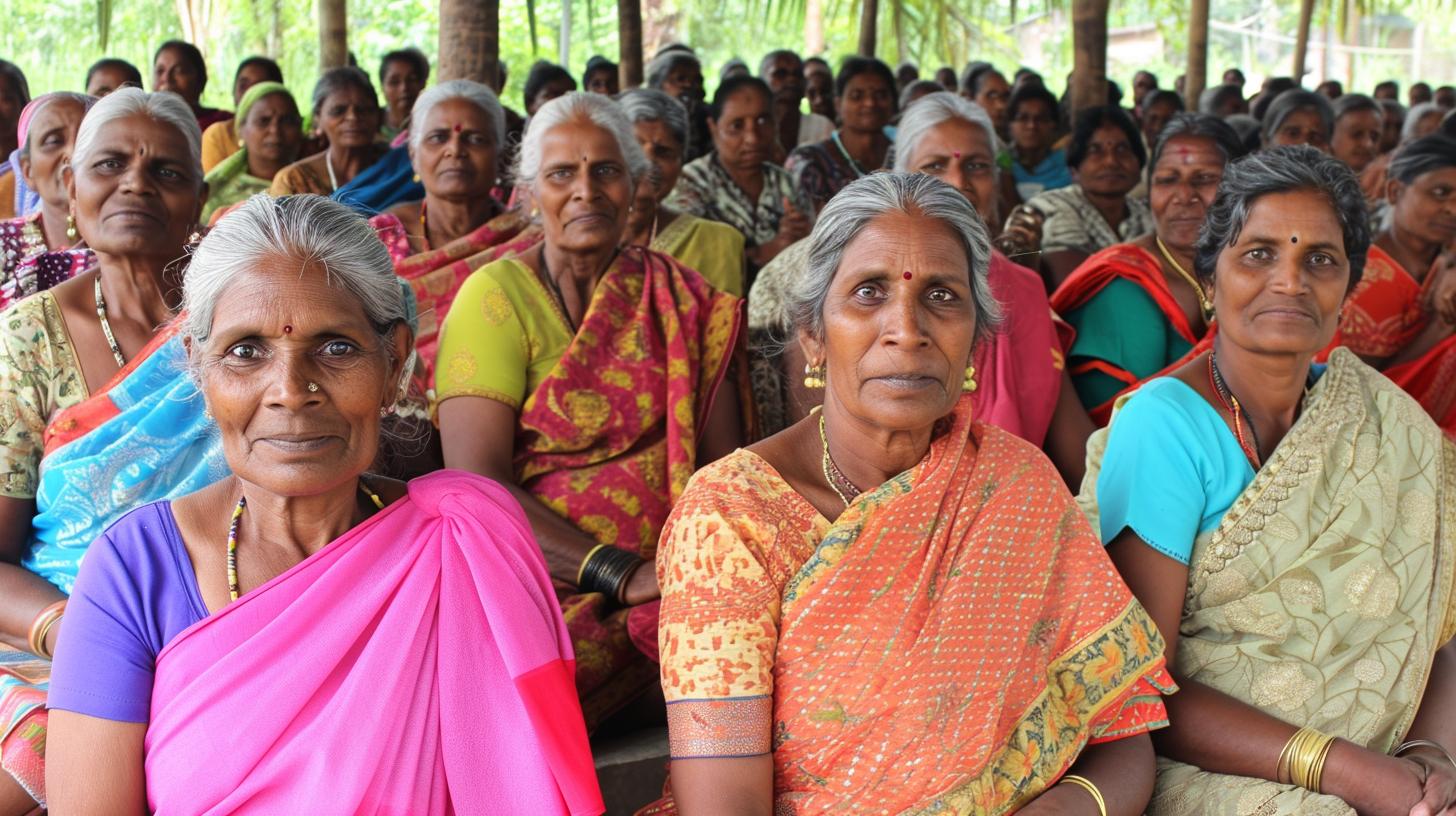
Are you passionate about making a difference in your community through healthcare? If so, pursuing a certificate course in community health may be the perfect option for you. This specialized program equips individuals with the necessary knowledge and skills to address public health issues at the grassroots level, making a tangible impact on the well-being of local communities.
The certificate course in community health focuses on providing students with a comprehensive understanding of public health principles, strategies for promoting healthy behaviors, and techniques for effectively managing health initiatives within diverse communities. This program is ideal for anyone looking to make a meaningful contribution to society by improving access to essential healthcare services and resources.
In this article, we will explore the numerous benefits of pursuing a certificate course in community health and examine the diverse career opportunities available to graduates. Additionally, we will delve into the curriculum structure of these programs, highlight real-world case studies of successful graduates, and provide valuable tips for selecting the right institution to earn your certification.
Whether you are an aspiring healthcare professional or a current practitioner seeking to expand your expertise, this introductory guide will provide you with valuable insights into the world of community health education. Join us as we uncover the significance of certificate courses in community health and discover how they are shaping the future of public health initiatives around the world.
Benefits of Pursuing a Certificate Course in Community Health
The benefits of pursuing a Certificate Course in Community Health are numerous and far-reaching. In today’s society, there is an increasing demand for qualified professionals who can address the healthcare needs of communities. By enrolling in a certificate course in community health, individuals can gain the necessary knowledge and skills to make a significant impact on public health.
One of the main benefits of pursuing a certificate course in community health is the opportunity to make a difference in people’s lives. Graduates of these programs are equipped to work directly with local populations, addressing their unique health concerns and promoting wellness within their communities. This hands-on experience allows individuals to see the tangible effects of their work and provides a sense of fulfillment that is unmatched in many other professions.
Additionally, obtaining a certificate in community health can open up various career opportunities for individuals. Whether it’s working with non-profit organizations, government agencies, or healthcare facilities, graduates of these programs are well-prepared to take on roles such as community health educators, outreach coordinators, or public health advocates. The diverse skill set acquired through this program makes graduates highly adaptable and valuable in the job market.
Furthermore, pursuing a certificate course in community health can lead to personal and professional growth for individuals. Not only do students gain knowledge about disease prevention, epidemiology, and healthcare policy, but they also develop crucial skills such as communication, problem-solving, and cultural competency. These skills are essential for addressing the complex challenges that arise within communities and for collaborating with diverse stakeholders to achieve positive health outcomes.
For those interested in making meaningful contributions to society while also advancing their careers, enrolling in a certificate course in community health is an excellent choice. As the demand for qualified professionals in this field continues to grow, obtaining this certification can provide individuals with both job stability and the opportunity to create positive change within communities.
Curriculum Overview of the Certificate Course in Community Health
The curriculum of a Certificate Course in Community Health is designed to provide students with the knowledge and skills needed to address the health needs of communities. Here’s an overview of what you can expect to learn in a typical program:
- Foundations of Community Health: Students will explore the principles and theories that underpin community health, including the social determinants of health, epidemiology, and health promotion strategies.
- Public Health Policy and Administration: This course will cover the laws, regulations, and policies that shape public health practice, as well as the management and administration of community health programs.
- Community Assessment and Planning: Students will learn how to assess the health needs of different communities, develop intervention strategies, and create effective health promotion programs.
In addition to these core courses, students may also have the opportunity to take electives or specialize in certain areas of community health such as maternal and child health, environmental health, or global health.
Clinical Practice
A key component of many certificate courses in community health is hands-on clinical experience. This may involve working with community organizations, conducting health assessments, or implementing public health initiatives.
Culminating Experience
Many programs culminate in a capstone project or internship where students apply their knowledge and skills in a real-world setting. This experience allows students to demonstrate their understanding of community health concepts and gain practical experience that can be valuable for future employment opportunities.
Career Opportunities for Graduates of the Certificate Course in Community Health
After successfully completing a certificate course in community health, graduates have an array of career opportunities available to them. The knowledge and skills obtained from this program open doors to various roles in the healthcare industry, non-profit organizations, government agencies, and community-based organizations. Below are some career opportunities for graduates of the certificate course in community health:
1. Community Health Educator: Graduates can work as community health educators who are responsible for educating people about behaviors that promote wellness. They may develop and implement programs to educate communities about topics such as stress management, nutrition, and disease prevention.
2. Public Health Specialist: With their expertise in community health, graduates can pursue a career as a public health specialist. These professionals analyze and develop initiatives to improve the overall health of a population through education and outreach programs.
3. Health Program Coordinator: Graduates can also work as health program coordinators who oversee the planning, implementation, and evaluation of various health programs within communities. They collaborate with healthcare providers and community members to ensure that the program meets the needs of the population.
4. Community Health Worker: This role involves working closely with individuals and communities to provide access to healthcare services, resources, and information. Community health workers play a critical role in bridging the gap between healthcare providers and underserved populations.
5. Non-Profit Organization Administrator: Graduates can pursue administrative roles within non-profit organizations focused on improving community health outcomes. They may be involved in fundraising efforts, strategic planning, program development, and policy advocacy.
These career opportunities not only offer fulfilling work but also provide professionals with the chance to make a positive impact on the well-being of individuals and communities through their knowledge gained from completing a certificate course in community health.
Case Studies and Success Stories of Certificate Course Graduates in Community Health
Community health workers play a crucial role in promoting and improving the health outcomes of individuals and communities. Graduates of a certificate course in community health are equipped with the necessary knowledge and skills to address various health issues prevalent in different populations. Through their work, these graduates have made significant impacts on the well-being of communities, as evidenced by numerous case studies and success stories.
One notable success story is that of Anne, who completed a certificate course in community health and went on to work in an underserved rural community. Through her efforts, she implemented educational programs on preventive healthcare measures, leading to a noticeable decrease in the incidence of preventable diseases within the community. Anne’s proactive approach to healthcare promotion has resulted not only in improved health outcomes but also in increased awareness among community members about the importance of preventive care.
Another inspiring case study is that of John, who pursued a certificate course in community health and focused his efforts on addressing mental health challenges among adolescents. By organizing support groups and advocating for mental health awareness in schools, John was able to create a safe space for young individuals to seek help and support. His dedication and impact were recognized when he was awarded for his outstanding contribution to mental health advocacy within the community.

Furthermore, graduates like Anne and John have demonstrated that the knowledge and skills acquired through a certificate course in community health can be instrumental in creating sustainable change within various healthcare settings. Their success stories serve as motivation for aspiring community health workers and highlight the significance of such specialized training programs.
| Graduate | Impact |
|---|---|
| Anne | Decrease in preventable diseases within rural community |
| John | Creation of supportive environment for adolescent mental health |
These case studies underscore the vital role that certificate course graduates play in addressing diverse healthcare needs at the grassroots level while also shaping positive changes within communities. As such, pursuing a certificate course in community health can lead to fulfilling careers with tangible impacts on public health outcomes.
Top Institutions Offering Certificate Courses in Community Health
When considering pursuing a certificate course in community health, it is essential to select the right institution that offers a comprehensive and reputable program. Several top institutions around the world provide quality education and training in community health, preparing individuals for successful careers in this field.
One of the leading institutions offering a certificate course in community health is the Johns Hopkins Bloomberg School of Public Health. Their program covers a wide range of topics, including epidemiology, biostatistics, environmental health sciences, and social and behavioral determinants of health. The University of Washington also offers an excellent certificate course in community health, focusing on principles of public health practice, program planning and evaluation, as well as leadership and communication skills.
In addition to these prestigious universities, the University of Michigan School of Public Health is renowned for its certificate course in community health. Their program emphasizes community-based participatory research methods, health disparities and social inequalities, and public health management and policy. The Harvard T.H. Chan School of Public Health also provides a rigorous certificate course in community health, with a focus on global health issues, ethical considerations in public health practice, and healthcare management.
Furthermore, the University of California Berkeley School of Public Health offers a comprehensive certificate course in community health that delves into preventive medicine, occupational and environmental health sciences, as well as public health nutrition. These institutions are just a few examples of top-notch schools that provide exemplary education and training for individuals who aspire to make a difference in their communities through the pursuit of a certificate course in community health.
Overall, choosing the right institution for your certificate course in community health is crucial for obtaining the necessary knowledge and skills to thrive in this field. Prospective students should thoroughly research each program’s curriculum, faculty expertise, resources available for practical experience or internships, as well as alumni success stories before making their decision.
By selecting a reputable institution with an esteemed certificate course in community health program, individuals can embark on a rewarding journey towards positively impacting public health within their communities.
Tips for Choosing the Right Certificate Course in Community Health Program
Choosing the right certificate course in community health program can be a crucial decision for those looking to pursue a career in this field. With the increasing demand for healthcare professionals who are equipped to address community health concerns, it is important to carefully consider various factors before enrolling in a certificate program. Here are some tips for choosing the right certificate course in community health program:
Accreditation and Reputation of the Institution
When selecting a certificate course in community health, it is essential to research and consider the accreditation and reputation of the institution offering the program. Look for programs that are accredited by recognized accrediting bodies and have a strong reputation within the healthcare industry. This will ensure that you receive quality education and training that is valued by employers.

Curriculum and Course Structure
Evaluate the curriculum and course structure of the certificate program to ensure that it aligns with your career goals and interests. Look for programs that offer a well-rounded curriculum covering topics such as public health, epidemiology, healthcare management, and community outreach. Consider whether the program offers practical training opportunities such as internships or hands-on field experience.
Faculty Expertise and Support
The expertise and support provided by the faculty members can significantly impact your learning experience in a certificate course. Research the credentials and backgrounds of the faculty members involved in teaching the community health program. Look for programs that have experienced instructors with relevant experience in public health and community healthcare.
Career Services and Alumni Support
Explore the career services and alumni support available through the institution offering the certificate course. Programs that offer career counseling, job placement assistance, or networking opportunities can be valuable in helping you secure employment after completing the program. Additionally, reaching out to alumni for their insights on how the program has impacted their careers can provide valuable perspective.
Flexibility and Convenience
Consider your personal schedule and preferences when choosing a certification program in community health. Some programs may offer flexible study options such as online courses or part-time study arrangements, which can be beneficial if you are juggling other commitments. Additionally, evaluate factors such as location, class timing, and duration of the program to ensure it aligns with your needs.
By carefully considering these tips when choosing a certificate course in community health program, individuals can make informed decisions about their education and training options within this growing field of healthcare.
Real-World Applications and Impact of Community Health Certificate Course
The real-world applications and impact of a certificate course in community health are widespread and significant. Graduates from these programs are equipped with the knowledge, skills, and practical experience to make a positive difference in the health and well-being of communities. From promoting preventive health measures to addressing specific health concerns, the impact of those who have completed a certificate course in community health is tangible and far-reaching.
Implementing Health Education Programs
One of the most evident real-world applications of a community health certificate course is the ability to implement effective health education programs within communities. Graduates are trained to assess the needs of different populations, develop tailored health education materials, and conduct outreach initiatives to spread awareness about critical health issues. These programs contribute to improving overall health literacy and empowering individuals to make informed decisions about their well-being.
Advocacy for Public Health Policies
Community health professionals play a crucial role in advocating for public policies that promote population-wide wellness. A certificate course in community health provides students with an understanding of public health frameworks, epidemiology, and policy analysis. This knowledge enables graduates to actively participate in shaping policies that address social determinants of health, access to healthcare services, and environmental factors affecting community well-being.
Engagement in Community-Based Research
Another impactful application of a community health certificate course is the contribution to community-based research efforts. Graduates are skilled at conducting needs assessments, gathering data on prevalent health issues, and implementing evidence-based interventions. Through participation in research projects, they can identify trends, analyze root causes of health disparities, and propose solutions that directly benefit local populations.
Addressing Health Disparities
The impact of a certificate course in community health is particularly evident in efforts to address existing disparities in healthcare access and outcomes. By focusing on underserved communities or marginalized populations, graduates apply their knowledge to create more equitable healthcare systems through outreach programs, resource allocation advocacy, and collaboration with local stakeholders.
Improving Population Health Outcomes
Overall, the real-world application and impact of a community health certificate course ultimately result in improved population-level health outcomes. Whether through direct interventions, policy influence, or educational initiatives, graduates contribute to reducing disease burden, promoting healthy behaviors, and fostering environments conducive to well-being across diverse communities.
Conclusion and Final Thoughts on the Importance of Certificate Courses in Community Health
In conclusion, the Certificate Course in Community Health plays a vital role in preparing individuals for a fulfilling career in community health. The program not only equips students with the necessary knowledge and skills but also provides them with a deeper understanding of the importance of promoting health and wellness within communities. As discussed, pursuing a certificate course in community health offers numerous benefits, including job opportunities and career advancement.
By offering a comprehensive curriculum that covers various aspects of community health, such as disease prevention, health promotion, and healthcare management, the program ensures that students are well-prepared to address the diverse needs of different communities. Graduates of the certificate course are equipped to work in a wide range of settings, from non-profit organizations and government agencies to healthcare facilities and community centers.
The real-world impact of the Certificate Course in Community Health is evident through numerous success stories and case studies. These demonstrate how individuals who have completed the program have made significant contributions to improving public health within their communities. By implementing what they have learned, graduates are able to address specific health issues, promote healthy behaviors, and advocate for better access to healthcare services.
When considering institutions offering certificate courses in community health, it is important for prospective students to carefully evaluate the programs available. By looking at factors such as accreditation, faculty expertise, and hands-on learning experiences, individuals can make informed decisions about which program best aligns with their career goals and aspirations. Additionally, seeking out internships or practicum opportunities can provide valuable practical experience that complements classroom learning.
Overall, the Certificate Course in Community Health is an essential stepping stone for those passionate about making a difference in public health. With an increasing demand for professionals with expertise in community health, graduates of these programs have the potential to create meaningful change and improve the overall well-being of diverse populations. Evidently, pursuing a certificate course in community health is not only personally rewarding but also has far-reaching benefits for society as a whole.






